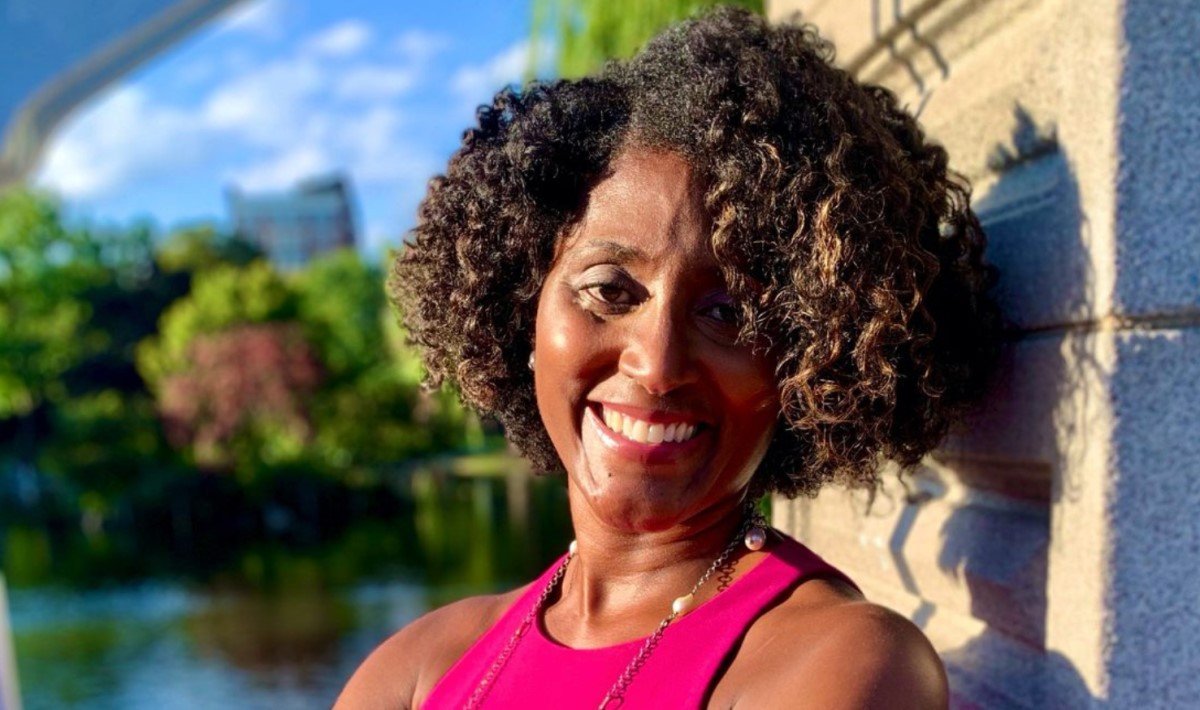Black Teens Are Suffering in Silence
Courtesy of Speaks 2 Inspire/ Abraham Sculley
During COVID-19, teens experienced higher rates of suicide attempts. For Black youth, the mental health impact is still lingering.
By Anissa Durham
You don’t have to suffer in silence.
Struggling with suicidal ideation is common, and getting help is available. But, for Black youth in the U.S., the rates of suicide attempts are rising. Regularly facing stigma, racial discrimination, and implicit bias from healthcare providers, many Black teens are suicidal.
Abraham Sculley was one of those teens.
During his first year of college, he moved away from home. Got his first apartment. And felt the brunt of being the first in his family to attend college. As the son of immigrant parents, he says he thought the stress was normal.
Over a few months, Sculley outlined his symptoms. He struggled to sleep. He could not eat. And he did not have the same energy he used to.
A friend stepped in to ask if he was OK.
“She created a safe space for me to open up, and I shared with her what I was experiencing,” he says. “I was having really dark and negative thoughts.”
Courtesy of Speaks 2 Inspire/ Abraham Sculley.
Sculley then went to see a counselor. To his surprise, he was diagnosed with major depressive disorder. Prior to his diagnosis, Sculley thought he was “going crazy.”
Part of his treatment was regular medication and counseling. But, due to the stigma surrounding mental health in the Black community, he was hesitant to keep up with his treatment. After feeling better from the medication, he decided to stop taking it — without telling his psychiatrist.
Things took a turn.
“Every symptom that I was experiencing with depression intensified when I came off the medication. And that’s when the suicidal ideation and thoughts started to creep in,” Sculley says. “I was fearful that I may act on this thought, and I didn’t trust myself. I wasn’t confident that I could overcome the intensity of the feelings and thoughts that I was having about ending the pain by taking my life.”
Sculley was 19 when he thought of ending his life.
He made the decision to leave school. He went home, hoping to get more support, but his family wasn’t able to give him the help he needed.
He realized there were things he could go to his parents about and things he could only talk to with his therapist. Sculley was doing the work of educating his family on mental health while setting a blueprint for them to follow.
I found one of my greatest treasures through one of my darkest moments.
— ABRAHAM SCULLEY, MENTAL HEALTH SPEAKER
As a Black man, he says the mindset in the Black community to just push through contributed to his mental health struggles. The belief to push through is a means of survival, Sculley says — something many Black youth experience.
COVID-19 Impact on Black Youth Mental Health
Khadijah Booth Watkins is the associate director of the Child and Adolescent Psychiatry training program at Massachusetts General Hospital. She also serves on the advisory board at The Jed Foundation (JED), a nonprofit working to prevent teen and young adult suicide. The organization has a resource center that helps youth manage their emotional needs and cope with life’s challenges.
Suicide is preventable.
— KHADIJAH BOOTH WATKINS, CHILD & ADOLESCENT PSYCHIATRIST
As a psychiatrist, she says there was a surge in the number of young people seeking mental health services during the pandemic.
“There was a tremendous amount of suffering and loss,” Watkins says.
The Black community was hit hardest during the pandemic in terms of loss of employment, illness, death, and food insecurity — with the community recovering the slowest when it comes to employment.
A report by the Centers for Disease Control and Prevention details the increase of suicide attempts by self-poisoning among people aged 10-19 during COVID-19. In 2021, more than 54,000 teens aged 16-19 attempted suicide.
With school closures and uncertainty of illness, Watkins says youth were struggling with the lack of structure. One of the differences she noticed about Black youth was a reluctance to talk about depression and suicidality. The youth in her office would complain about physical symptoms — like headaches, tiredness, and no motivation.
“In the Black community, we don’t talk about feelings. We ‘suck it up, buttercup,’ and that really doesn’t help anyone,” Watkins says. “If we hold it all in, we suffer in silence.”
The biggest thing a parent, friend, or loved one can do is to make it OK to have conversations on mental health, she says. The danger comes when we wait to the point where we are struggling with suicidality. It is important to address the stigma so we can move forward as a community.
“Suicide is preventable,” Watkins says.
There Is Strength in Vulnerability
Part of the reason Sculley did not talk about what he was experiencing during college was because he was uncomfortable. The friend who noticed his changing behavior patiently listened and provided a safe space for him to open up.
“I really felt validated at that moment,” he says.
Now, at 27, he encourages others not to be afraid to check in with their friends. There is a common thread in the Black community that strength looks one way. Like resilience and endurance, and seeking help is the opposite of strength. But Sculley disagrees.
“There is strength in being vulnerable,” he says. “There is strength in having the self-awareness to know I need help in this area. And having the courage to ask for help.”
Despite working through his suicidal ideation in college, Sculley says the pandemic brought similar feelings back up. “I thought I beat this.” But he came to terms with the fact that this global experience of trauma was not normal. With the nationwide Black Lives Matter protests and the media’s portrayal of Black people dying, a series of questions flooded his mind.
“What role do I play? Where do I fit in? How do I survive with all that’s going on?” he says. “So, there were times during the pandemic where I wasn’t doing well mentally. And I was having these dark thoughts.”
Related: Life and Death: When Police Criminalize Young Black Men
But, for Black youth or adults who are struggling with suicidal thoughts, Sculley has one message. “You are not alone.” Help is available, and resources like The Suicide Prevention Lifeline are free to call or text at 988.
Although he initially dropped out of college, Sculley went back. He finished his degree, and is now working as a mental health speaker and advocate. In 2020, he published his first book about reshaping the way we think about depression.
“I found one of my greatest treasures through one of my darkest moments.”
Resources
Find a therapist — psychologytoday.com offers a network of therapists who can help in your area.
Call the 988 Suicide & Crisis Lifeline for 24/7 free and confidential support for people in distress.
The Crisis Text Line provides free, 24/7, confidential support through text messages to people in crisis when they dial 741741.
Call 911.



